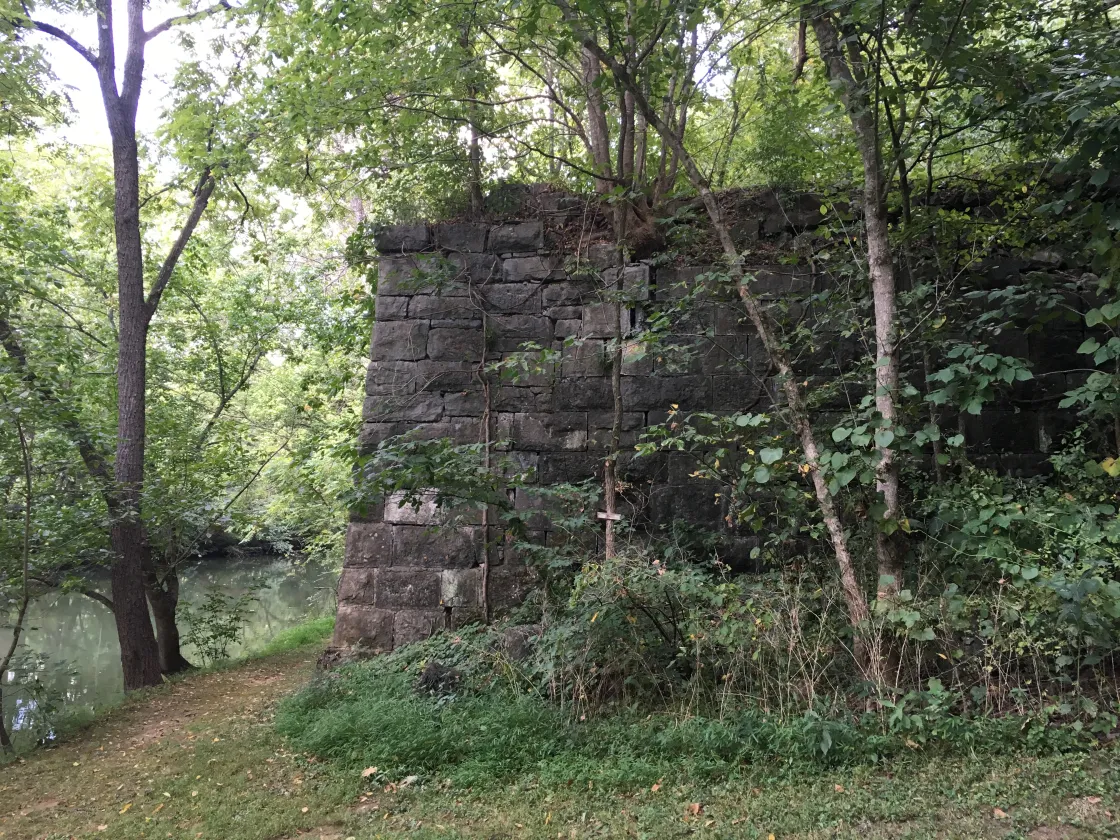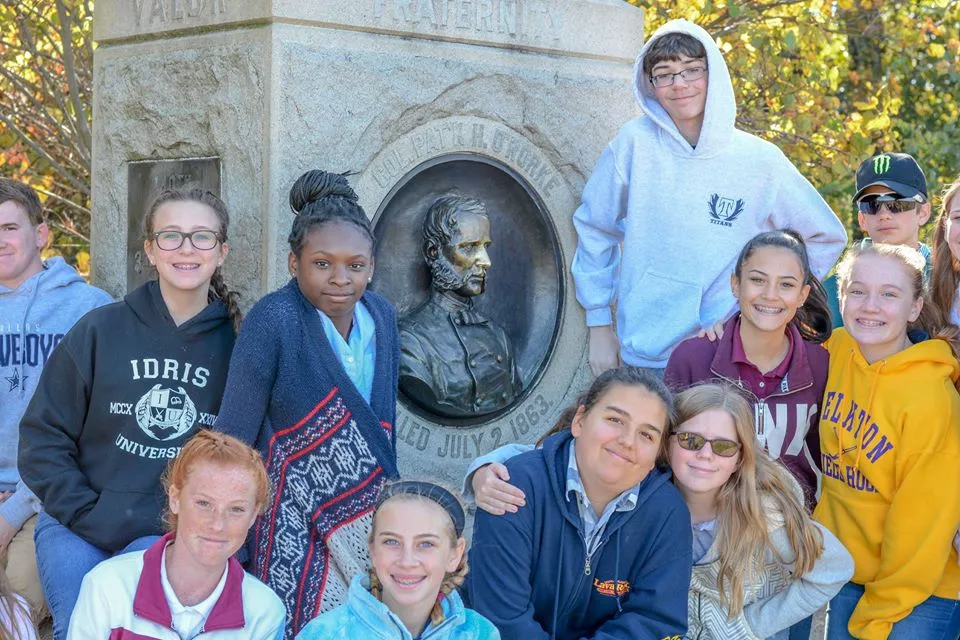2018 Monumental Year For American Battlefield Trust and Preservation of America’s Historic Battlegrounds
(Washington, D.C.) — The American Battlefield Trust, the premier national battlefield preservation organization, celebrated another landmark year of historic land conservation. With the help of generous donors, alongside strategic partnerships with government officials and nonprofit groups across the country, the Trust protected more than 2,783 acres of battlefield land in 9 states in 2018, preserving in perpetuity sites rooted in the Revolutionary War, War of 1812 and Civil War. The year’s successes marked a historic milestone as the Trust surpassed 50,000 total acres saved.
“Undoubtedly, 2018 will be remembered as a year of transformative and monumental victories for battlefield preservation,” said Trust President James Lighthizer. “The land we saved will forever serve as a living memorial to America’s brave soldiers and our nation’s history, now protected for generations to come. We are grateful beyond measure for another year of generous support, because every penny raised and every acre saved is an investment in our national treasures and helps us continue the ongoing race to save our hallowed grounds.”
Working closely with willing landowners and preservation partners, the Trust completed 32 transactions at 25 battlefield sites, including Appomattox Court House, Va.; Brandy Station, Va.; Brandywine, Pa.; Brice’s Cross Roads, Miss.; Camden, S.C.; Carthage, Mo.; Cedar Creek, Va.; Champion Hill, Miss.; Chancellorsville, Va.; Chattanooga, Tenn.; Cold Harbor, Va.; Corinth, Miss.; Fort Donelson, Tenn.; Glendale, Va.; Malvern Hill, Va.; Hanging Rock, S.C.; New Market Heights, Va.; North Anna, Va.; Prairie D’Ane, Ark.; Princeton, N.J.; Rappahannock Station, Va.; Second Deep Bottom, Va.; Shiloh, Tenn.; Trevilian Station, Va.; and Yorktown, Va. The Trust also facilitated the establishment of a national monument at Camp Nelson, Ky.

The mid-year acquisition of a 13-acre tract at Cedar Creek — where Union troops gained control over the Shenandoah Valley — pushed the Trust over the 50,000-acre threshold. Just one day prior to this transaction, the Trust celebrated another critical success with the purchase of the 15-acre Washington’s Charge Site on the Revolutionary War battlefield at Princeton, N.J., where Gen. George Washington personally led a valiant charge against British troops. And, while all successful land preservation efforts are priceless, the Trust undertook our second largest project ever with the $5.65 million acquisition of 49 acres at Yorktown, Va., the famed Revolutionary War surrender site. To date, the Trust has saved more than 1,000 acres of Revolutionary War and War of 1812 battlefield land.
Acreage saved is an important benchmark in battlefield preservation; however, safeguarding America’s most storied sites simply would not be possible without the Trust’s extensive fundraising efforts. Throughout 2018, the Trust launched appeals to save battlefields in Mississippi, Missouri, North Carolina, South Carolina, Tennessee and Virginia, as well as a notable $3.5 million campaign to save 18 acres on Seminary Ridge in Gettysburg, Pa. The property on Seminary Ridge witnessed fierce fighting on the first day of the Battle of Gettysburg and is among the most historically significant land at Gettysburg still in private hands.
The Trust also continued promoting greater appreciation and understanding of our nation’s defining conflicts through innovative educational programs and digital offerings. The nonprofit’s redesigned battlefields.org website received 8.8 million visits and 16.5 million page views, with visitation from every country in the world. Trust-created videos also received nearly 5 million views across a variety of platforms, with history lovers spending approximately 18.5 million minutes watching Trust content.
To further support history education in our nation’s schools, the Trust welcomed approximately 200 K-12 educators to the 18th annual National Teacher Institute, where teachers learned new techniques and tools to teach students about U.S. history in engaging ways. The Trust also encouraged education outside the classroom with its Field Trip Fund, which crossed a threshold in 2018 by sending its 20,000th student to experience battlefields and historic sites in person. The fund was in its fourth year when it reached the milestone.

“While acreage and fundraising have their roles in preservation, we must educate and inspire the generations who will become future stewards of our land and history,” said Lighthizer. “Our hallowed grounds are an exceptional place for learning and, by getting kids outside, we can encourage greater learning and spark interest in exploring American history. For those who may not otherwise have exposure to battlefields, these trips are rewarding and life-altering, and the Trust is proud of our role in the education of America’s young people.”
The Trust’s preservation work in 2018 would not have been possible without the dedication of government partners, including the American Battlefield Protection Program; National Park Service; Adams County, Pa; Arkansas Historic Preservation Program; Bentonville Battlefield State Historic Site (N.C.); Birmingham Township, Pa.; Boyle County Fiscal Court (Ky.); Brandywine Conservancy (Pa.); Chester County Preservation Partner Program (Pa.); City of Chattanooga, Tenn.; City of Franklin, Tenn.; Fauquier County, Va.; East Bradford Township, Pa.; Frederick County, Md.; Georgia Department of Natural Resources; Hanover County, Va.; Jasper County Commission (Mo.); Jessamine County Fiscal Court (Ky.); Jefferson County Historic Landmarks Commission (W.Va.); Kentucky Heritage Council; Kentucky Heritage Land Conservation Fund; Lancaster County, S.C.; Maryland Department of Natural Resources; Maryland Department of Transportation; Maryland Environmental Trust; Maryland Heritage Areas Authority; Maryland Historical Trust; Mercer County, N.J.; Mississippi Department of Archives and History; Municipality of Princeton, N.J.; New Jersey Department of Environmental Protection; New York Parks, Recreation and Historic Preservation; North Carolina Department of Natural and Cultural Resources; NOVA Parks (Va.); Oklahoma Historical Society; Pennsylvania Department of Community and Economic Development; Pennsylvania Historical and Museum Commission; Prince William County, Va.; South Carolina Conservation Bank; South Carolina Department of Archives and History; Tennessee Historical Commission; Virginia Department of Conservation and Recreation; Virginia Department of Historic Resources; Virginia Department of Transportation; Virginia Outdoors Foundation; Virginia Land Conservation Foundation; Washington County, Md.; and Wilkes County, Ga.
Numerous organizations also contributed to these successes, including the Agricultural Stewardship Association; Averasboro Battlefield Commission; Battle of Franklin Trust; Brandy Station Foundation; Brandywine Conservancy & Museum of Art; Brice’s Crossroads National Battlefield Commission, Inc.; Central Maryland Heritage League; Central Virginia Battlefields Trust; Franklin’s Charge; Friends of Cedar Mountain Battlefield; Friends of Perryville Battlefield; Friends of Shiloh National Military Park; Friends of Vicksburg National Military Park and Campaign; Friends of Wilderness Battlefield; Georgia Battlefields Association; Georgia Piedmont Land Trust; Gettysburg Foundation; Herndon Foundation; HTR Foundation; Katawba Valley Land Trust; Kettle Creek Battlefield Association; Land Conservancy of Adams County; Land Trust of Virginia; Lord Berkeley Conservation Trust; Lyndhurst Foundation; Manassas Battlefield Trust; National Parks Conservation Association; National Park Foundation; Natural Lands Trust, Inc.; Nevada County Depot & Museum; Ozark Regional Land Trust, Inc.; Petersburg Battlefields Foundation; Piedmont Environmental Council; Princeton Battlefield Society; Richmond Battlefields Association; Riverview Foundation; Save Historic Antietam Foundation; Shenandoah Valley Battlefields Foundation; Shepherdstown Battlefield Preservation Association; South Carolina Battleground Preservation Trust; Tennessee Civil War Preservation Association; The Journey Through Hallowed Ground National Heritage Area; Trevilian Station Battlefield Foundation; Volgenau Foundation; Watson-Brown Foundation; and Williamsburg Battlefield Association.
The American Battlefield Trust is dedicated to preserving America’s hallowed battlegrounds and educating the public about what happened there and why it matters today. The nonprofit, nonpartisan organization has protected more than 50,000 acres associated with the Revolutionary War, War of 1812 and Civil War. Learn more at www.battlefields.org.


